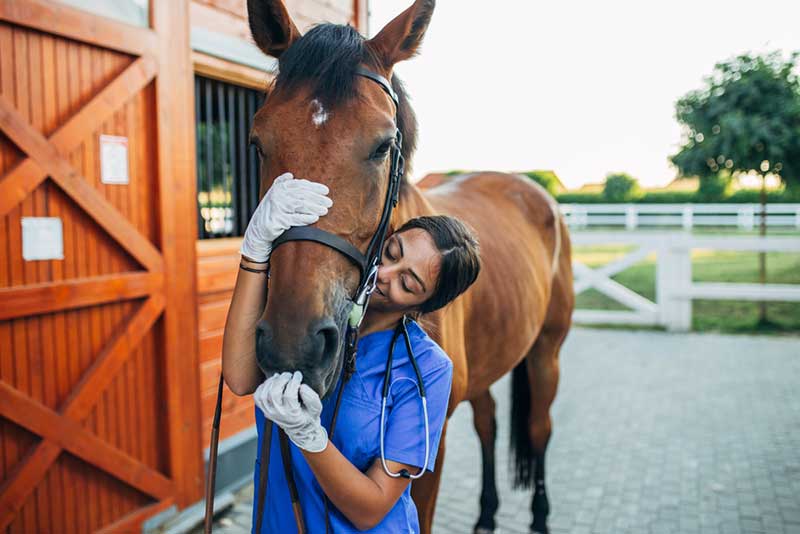
Why Does My Healthy Pet Need Lab work?
When you schedule an appointment for a sick pet, you likely expect our veterinarians to recommend diagnostic testing like blood tests, urinalyses, or other types of lab work. But did you know that it’s also smart to run these tests on healthy pets that aren’t experiencing any unusual symptoms?
Why Screen Pets with Regular Blood Tests and Other Lab Work?
1. Detect Early Signs of Disease
Regular lab work helps our veterinarians detect early signs of diseases in pets. Blood tests, urinalyses, and fecal tests help us evaluate the health of your pets and livestock and also analyze the function of their organs. Regular lab work establishes a baseline of your pet’s body when it’s functioning normally, enabling us to spot signs of early illness.
2. Prevent Symptoms
It’s important to detect early signs of disease because we can begin treatment immediately. As a result, pets don’t have to become noticeably ill before they receive treatment, preventing unnecessary pain and suffering.
3. More Effective Treatment
Many chronic illnesses such as cancer, diabetes, heart disease, liver disease, and kidney disease are most effectively treated when they are diagnosed early before they’ve had the chance to progress to advanced stages.

4. Safely Prevent Heartworm
Before administering heartworm preventatives to dogs, it’s essential to screen dogs for heartworm. Giving a heartworm preventative to a dog who already has heartworm parasites in his system can be a fatal mistake.
5. Monitor Chronic Illness
We use lab work to monitor pets who are living with chronic diseases. This helps us determine how advanced the illness has become and whether the current treatments are effective.
6. Safely Perform Surgery
Blood work also helps to determine whether a pet is healthy enough to undergo anesthesia.

When Should My Healthy Pet Have a Blood Test?
Depending on your pet’s species, breed, age, and condition, our experts in both large and small animals at Adobe Veterinary Center will help you determine when it’s most appropriate for your pet to have a blood test and/or other diagnostic tests such as x-rays or an ultrasound. We use these tests to monitor animal health throughout life and especially as pets age to help detect early signs of age-related health concerns.
To learn more about regular lab work for pets and additional veterinary diagnostic services available to our large and small patients in Tucson, we welcome you to contact Adobe Veterinary Center today.







